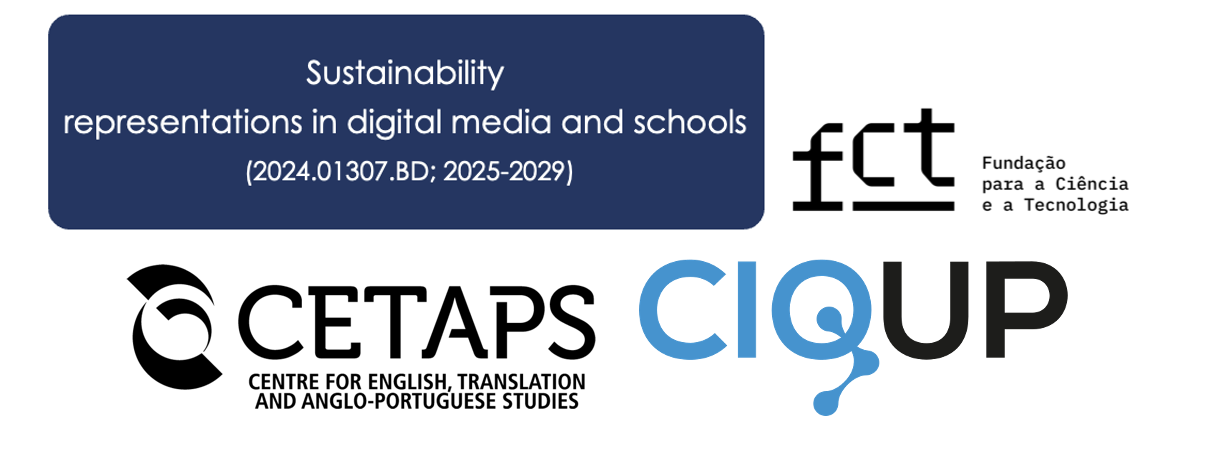Last April I submitted my application for the 2024 PhD Studentship Call, funded by Fundação para a Ciência e a Tecnologia (FTC) (the main Portuguese research public agency). I was awarded a four-year studentship with the project “Sustainability – representations in digital media and schools”. The work involves two academic institutions, the Research Center in Chemistry (CIQUP), and the Centre for English, Translation, and Anglo-Portuguese Studies (CETAPS), with a guidance team composed of two supervisors, Carla Morais and Luciano Moreira.

This studentship represents several personal and professional achievements, among which is the opportunity to expand on two topics I have been working on in previous projects. One of these aspects is the concept of social representations and the second is sustainability. Considering social representations, as someone with a background in Psychology, this field is not new for me in theory and, in practice, I was involved in the process of evaluating the public’s social representations on the deep sea, through a cutting-edge project in science communication and science communication evaluation on the deep sea through a virtual reality immersive experience (The I SEA Project: https://www.fc.up.pt/isea/). About the second topic, I approached the theme of sustainability while working as a fellow researcher in an Erasmus+ project aiming to support schools in developing a curriculum and daily practices to foster sustainability education (The SustainAll Project: https://sustainall.eu/en/). The I SEA project showed the potential of the social representations theory in acknowledging people’s sense-making of a novel, unknown subject; whereas SustainAll proved how people’s perceptions of sustainability shape their discourses and, more importantly, their practices.
The present study allies both topics aiming to investigate how sustainability is communicated in literature and media and how it is perceived by main school actors. It resorts to digital media to study the media’s impact on shaping perceptions about sustainability, but also to disseminate the project’s results, translating them into visually appealing clear language. In a nutshell, the project intends to map current meanings and definitions of sustainability in literature and media and how they affect educational actors’ social representations to inform efficient pro-sustainability actions.
